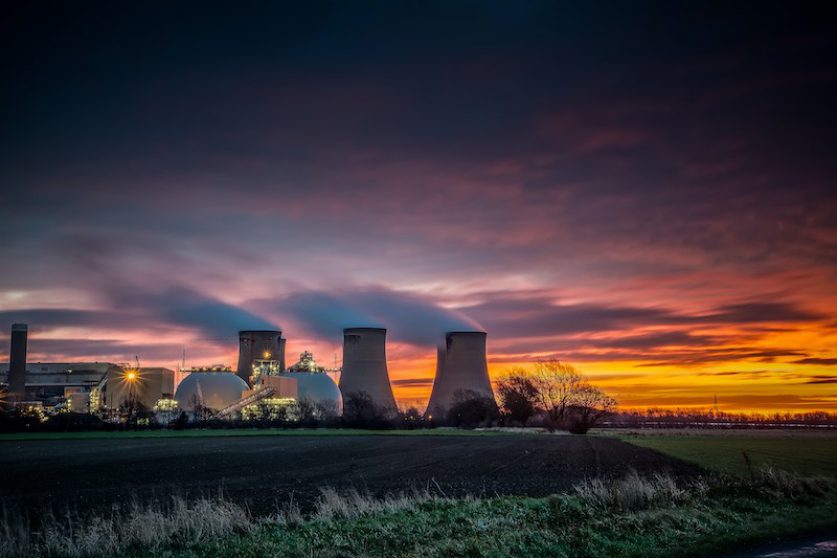
Drax confirmed it has scrapped plans to replace the coal-fired units at its North Yorkshire power station with two combined cycle gas turbines (CCGTs), after backlash from environmental groups.
The proposed gas units had become a flashpoint in the struggle between corporations and green activists, with environmentalists arguing that the plans jeopardised the UK’s decarbonisation targets and reputation as a global climate leader. The 3.6GW plant was to be the largest gas power station in Europe and responsible for 75% of the UK’s power sector emissions.
Drax’s plans had been the subject of a three-year legal battle mounted by environmental charity ClientEarth. A court of appeal rejected ClientEarth’s bid to stop the project just last month, clearing the way for Drax to move ahead.
But the FTSE 250-listed company has now backtracked, with its full-year results for 2020 affirming a commitment to renewable power and a goal of being “carbon negative” by 2030.
Drax has confirmed that the coal-fired units at the Selby plant will be taken offline next month, ahead of the government’s 2025 ban on coal power, and that it won’t develop any new gas generating capacity on site.
Drax also sold four of its other CCGTs to VPI Holdings in December. However, it retains the option of developing four small scale gas plants, with capacities of 299MW each, designed to run for short periods during times of peak electricity demand.
Drax said it will focus on renewable and flexible power, including its pumped storage and hydro assets and on coal units that have been converted to burn wood pellets at the Selby plant.
Chief executive Will Gardiner said: “Our focus is on renewable power. Our carbon intensity is one of the lowest of all European power generators. We aim to be carbon negative by 2030 and are continuing to make progress. We are announcing today that we will not develop new gas fired power at Drax. This builds on our decision to end commercial coal generation and the recent sale of our existing gas power stations.”
However, Drax’s pivot to biomass has also been controversial. The utility claims the burning of wood pellets is a carbon-neutral and renewable energy source because growing trees absorb the carbon dioxide they emit when burned. However, scientists and environmental activists have disputed these claims, saying the scramble for biomass is destroying forests and incurring huge carbon bills in shipping wood.
Drax reported a £156 million operating loss last year, with obsolescence charges totalling £239 million. This was mostly made up of losses from closing its coal-fired units but the decision to scrap the gas plant will also cost Drax £13 million.




